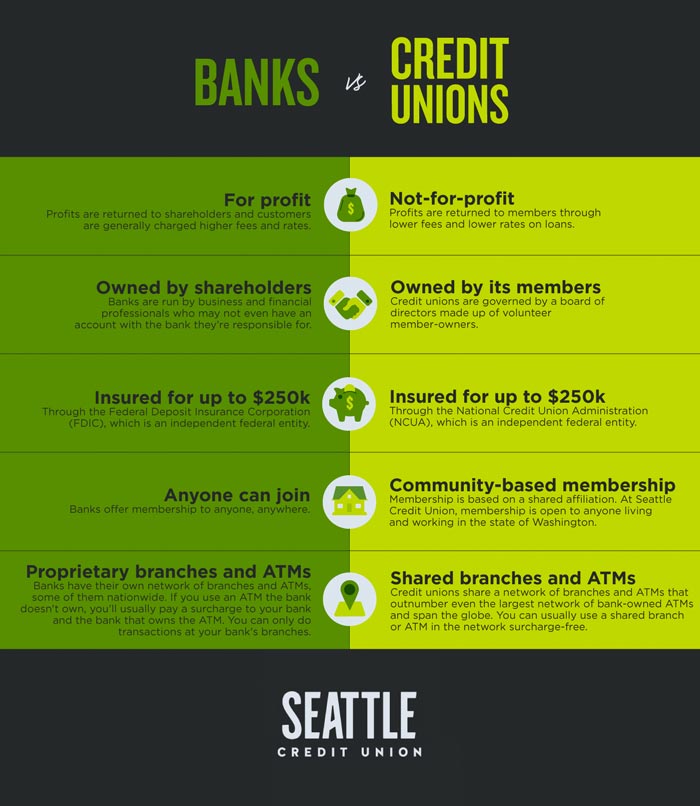Wyoming Credit Union: Trusted Financial Solutions for every single Demand
The Ultimate Guide to Recognizing Credit Rating Unions

Credit scores unions stand as one-of-a-kind monetary entities, rooted in concepts of common support and member-driven procedures. Past their fundamental worths, comprehending the intricate workings of credit history unions involves a deeper exploration. Unwinding the intricacies of membership eligibility, the development of services offered, and the unique benefits they bring requires a detailed assessment. As we navigate with the complexities of cooperative credit union, an informative journey awaits to clarify these member-focused establishments and exactly how they vary from typical financial institutions.
What Are Lending Institution?
Credit score unions are member-owned financial organizations that use a range of financial services to their participants. Unlike standard banks, lending institution run as not-for-profit companies, meaning their main emphasis is on offering their members instead of maximizing profits. Participants of a lending institution usually share a typical bond, such as helping the same company, belonging to the very same community, or becoming part of the very same organization.
Among the key benefits of cooperative credit union is that they commonly supply greater rates of interest on interest-bearing accounts and reduced rate of interest on financings compared to financial institutions. Credit Union in Wyoming. This is since debt unions are structured to profit their members directly, permitting them to pass on their revenues in the kind of far better rates and less costs. Additionally, cooperative credit union are understood for their customized customer care, as they prioritize developing partnerships with their participants to recognize their unique economic requirements and goals
History and Development of Lending Institution
The origins of member-owned financial cooperatives, recognized today as cooperative credit union, trace back to a time when neighborhoods looked for choices to typical banking institutions. The principle of credit rating unions come from the 19th century in Europe, with Friedrich Wilhelm Raiffeisen frequently attributed as the pioneer of the cooperative financial movement. Raiffeisen established the very first identified lending institution in Germany in the mid-1800s, emphasizing neighborhood assistance and self-help principles.
The evolution of cooperative credit union continued in North America, where Alphonse Desjardins established the initial cooperative credit union in Canada in 1900. Quickly after, in 1909, the first U.S. lending institution was developed in New Hampshire by a team of Franco-American immigrants. These early lending institution operated on the essential concepts of shared assistance, autonomous control, and member ownership.
Gradually, cooperative credit union have actually expanded in popularity worldwide because of their not-for-profit structure, concentrate on offering members, and supplying competitive financial products and solutions. Today, credit history unions play a crucial duty in the monetary sector, offering community-oriented and accessible financial alternatives for people and businesses alike.

Subscription and Qualification Criteria
Membership at a cooperative credit union is generally restricted to people meeting particular eligibility requirements based on the establishment's founding principles and regulatory requirements. These requirements typically include factors such as geographical place, employment status, subscription in certain organizations, or association with particular groups. Lending institution are understood for their community-oriented method, which is reflected in their membership needs. Federal site Credit Union. Some credit rating unions might just serve individuals that live or function in a particular location, while others might be customized to workers of a certain company or participants of a particular organization.
Additionally, cooperative credit union are structured as not-for-profit organizations, implying that their key objective is to serve their members rather than create earnings for shareholders. This focus on member solution typically equates right into even more personalized interest, reduced fees, and affordable rate of interest prices on financings and cost savings accounts. By meeting the qualification standards and becoming a member of a cooperative credit union, people can access a variety of financial product or services customized to their details requirements.
Solutions and Products Supplied
One of the vital elements that establishes lending institution apart is the diverse series of economic services and products they supply to their members. Cooperative credit union generally provide traditional financial solutions such as savings and checking accounts, loans, and bank card. Members can likewise benefit from investment solutions, including retired life accounts and monetary preparation aid. Several credit history unions supply affordable rates of interest on interest-bearing accounts and car loans, as well as lower costs contrasted to standard financial institutions.
Additionally, lending institution frequently offer convenient online and mobile banking alternatives for participants to conveniently manage their financial resources. They might use rewards such as shared branching, permitting members to access their accounts at various other credit score unions throughout the nation. Some lending institution also provide insurance coverage products like auto, home, and life insurance policy to visit this site aid members protect their assets and liked ones.

Advantages of Banking With Credit Scores Unions
When taking into consideration monetary institutions, exploring the advantages of banking with credit report unions reveals distinct benefits for members seeking individualized solution and competitive prices. Unlike huge banks, credit scores unions are member-owned and prioritize structure solid connections with their members. Overall, banking with a credit scores union can supply a more tailored, affordable, and member-centric financial experience.
Verdict
In final thought, debt unions stand out as member-owned economic institutions that focus on serving their participants over optimizing profits. With beginnings dating back to 19th century Europe, credit history unions adhere to concepts of shared help and member possession.
Credit unions are member-owned financial institutions original site that provide a range of financial solutions to their participants. The principle of credit history unions originated in the 19th century in Europe, with Friedrich Wilhelm Raiffeisen frequently attributed as the pioneer of the participating financial movement.The evolution of credit unions continued in North America, where Alphonse Desjardins established the very first debt union in Canada in 1900. Credit unions commonly supply standard banking services such as savings and inspecting accounts, finances, and credit rating cards.When thinking about monetary organizations, discovering the benefits of financial with credit history unions discloses distinct advantages for participants looking for tailored service and affordable prices.